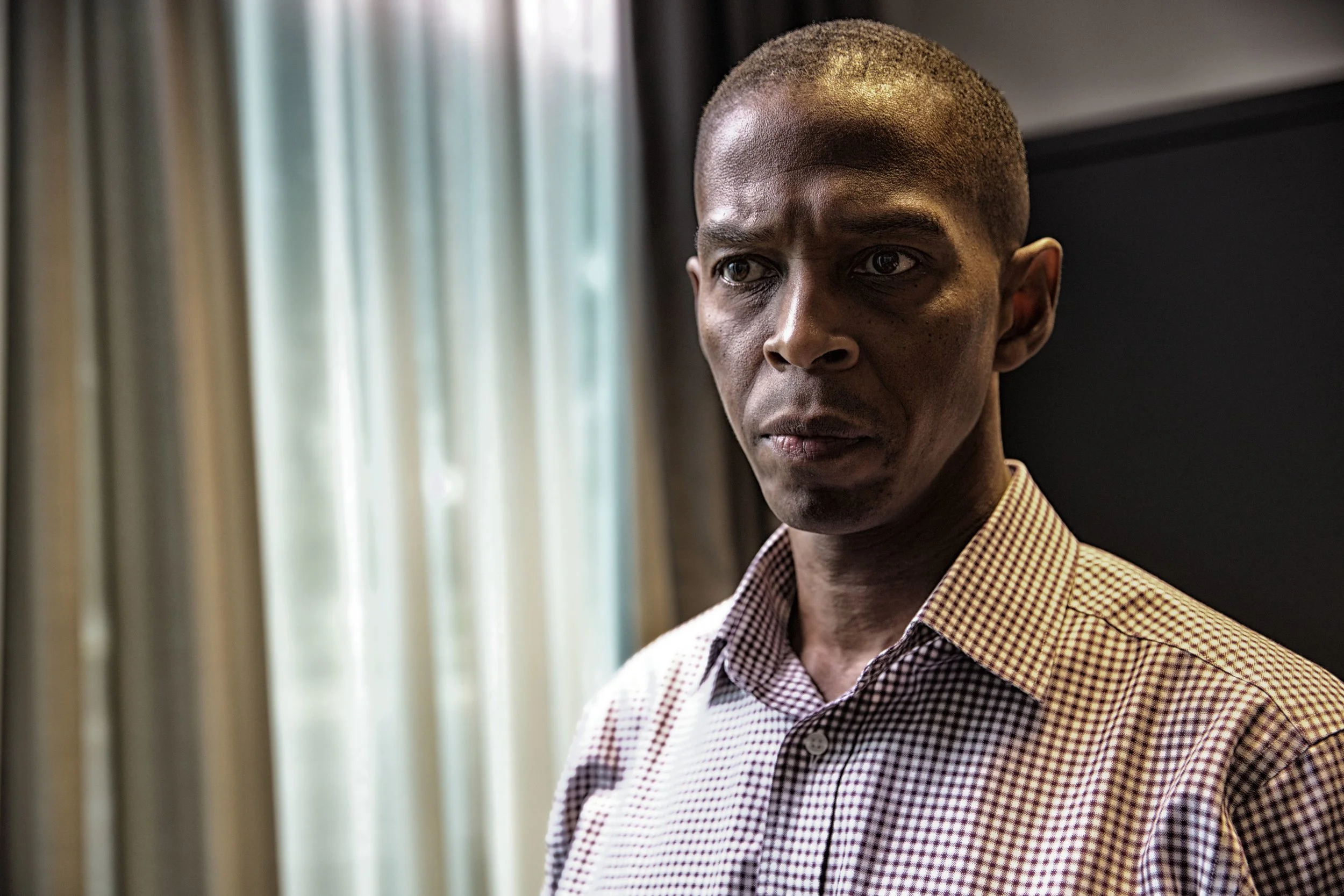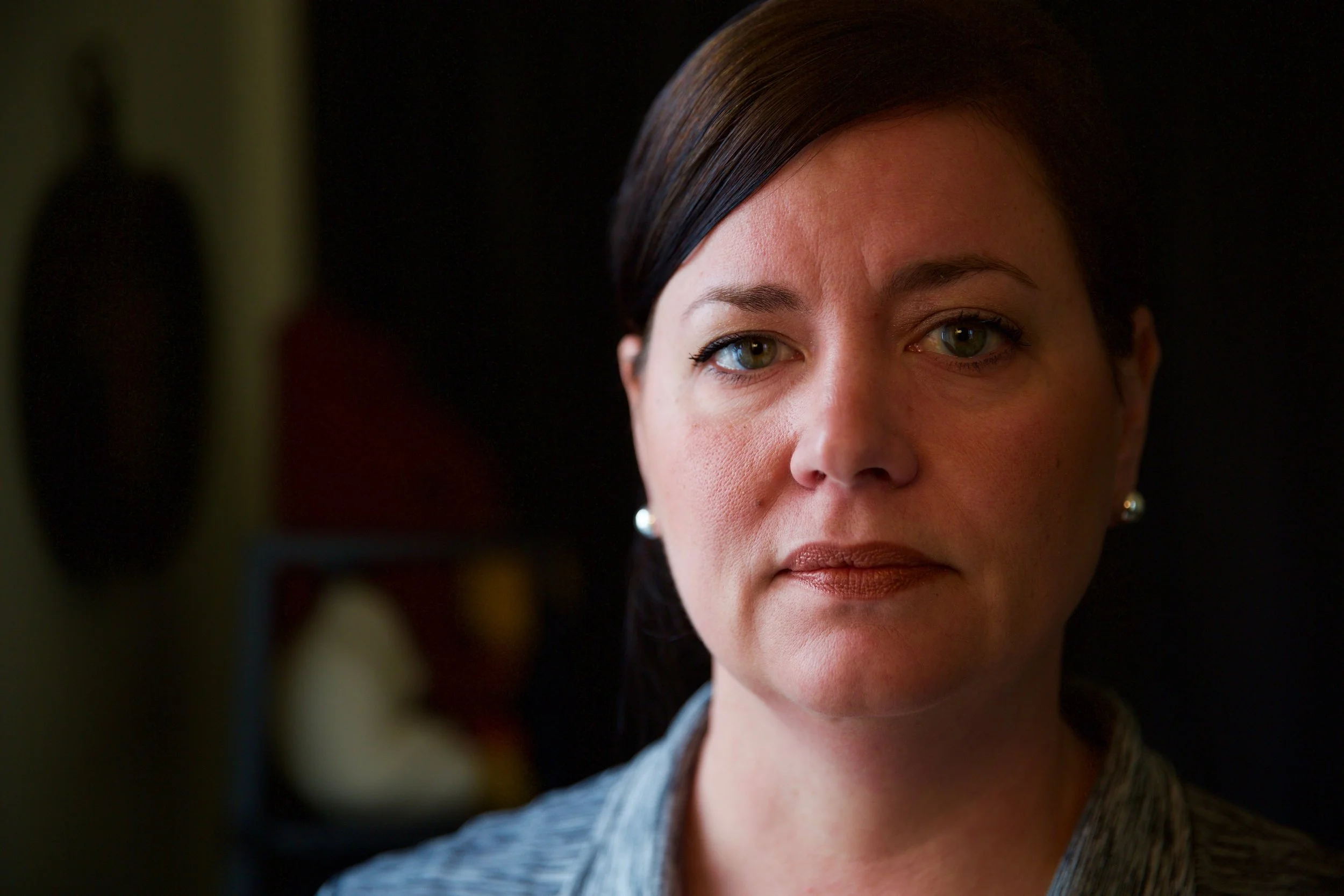Richmond Justice
STORIES + PORTRAITS
Marcus | June 3, 2016
Marcus Ganzie, 38, is a Richmond native and the son of Julia Ganzie, profiled by Richmond Justice on January 22nd. Marcus was sentenced to life in prison in 1994 and is currently incarcerated at Nottoway Correctional Center in Burkeville, 60 miles southwest of Richmond.
I’ve been incarcerated for 21 years now. I was 17 years old when I was convicted as an accessory to capital murder.
People don’t understand that being incarcerated is a form of torture that attacks your psyche. If you dig deep enough, you’ll discover that prison was well thought-out in its design to damage and destroy a human being. There are adverse effects to the caging of human beings. It’s proven that being around steel and concrete draws away human energy. It’s proven that being around white walls will make you crazy.
The criminal justice system in Virginia is broken and there is not rehabilitation for anyone. First, the notion that you are innocent until proven guilty is a lie. Second, the court-appointed lawyers are over-worked, swamped, and under-paid. The average court-appointed lawyer has at least 30 defendants to represent!
“Being in prison can’t be my destiny.”
The truth is that the justice system is not getting any better. Prisons provide a lot of jobs in rural areas. And there are companies, like JPay and Keefe Commissary, that prey on the incarcerated and profit from contracts with the Department of Corrections. The money factor makes incarceration a quota-driven system.
Racism is rampant in the justice system. When the torture stories came out about Abu Ghraib, I thought, “People are tortured in prison here! Just not as harshly as there.” In 2000, Red Onion State Prison was shooting, tasing, and strapping offenders to the bed in five-point restraints, spread eagle, for up to 72 hours. I was strapped down for an officer’s personal reasons for 34 hours until I begged to be released. I filed a cruel and unusual punishment suit and my case was settled out of court.
I’m not eligible for free college courses. Most of the reentry programs are for people who have remaining sentences of five years or less. I have taken the G.E.D. curriculum, though it is outdated. There are some basic computer classes but no cell phone curriculum. Learning how to use a cell phone is important for functioning in modern society. Think about the fact that you pay bills, bank, shop, take photos, and check email on a cellphone—and then consider that people like me have been locked up since 1994 and even earlier. When we are released back into society—and most of us are coming home—we won’t be prepared.
The advantage of being locked up is that you're away from the stresses of life—bills, food, clothing, transportation—and you get the opportunity to look at yourself and the world around you objectively. You can really look at what you’re doing wrong and how to do better. You can strategize in a way that people can’t when on the streets. You can reflect and feel remorse—and I do feel remorse. I know that I'm not the victim.
I’m motivated by freedom, my family, and my will to succeed and not be a failure. Being in prison can’t be my destiny, so I’m determined to discover what my destiny is! I’ve written some movie scripts and have tag lines, log lines, and synopses. I wrote three scripts in a month and a half, writing everyday. I just felt a wave of inspiration after I read a script-writing book.
I saw the photo of my mom from the Richmond Justice website, and it looked as though there was a lot of pain in her face. She is my greatest ally. She is strong, determined, and undaunted. She is the force and glue of my whole support system. If she wasn’t around, a lot of my family would not respond to me. The love my mother has for me is unbelievable and my reason to come home and succeed.
— From letters sent on December 8, 2015 and January 31, 2016
















